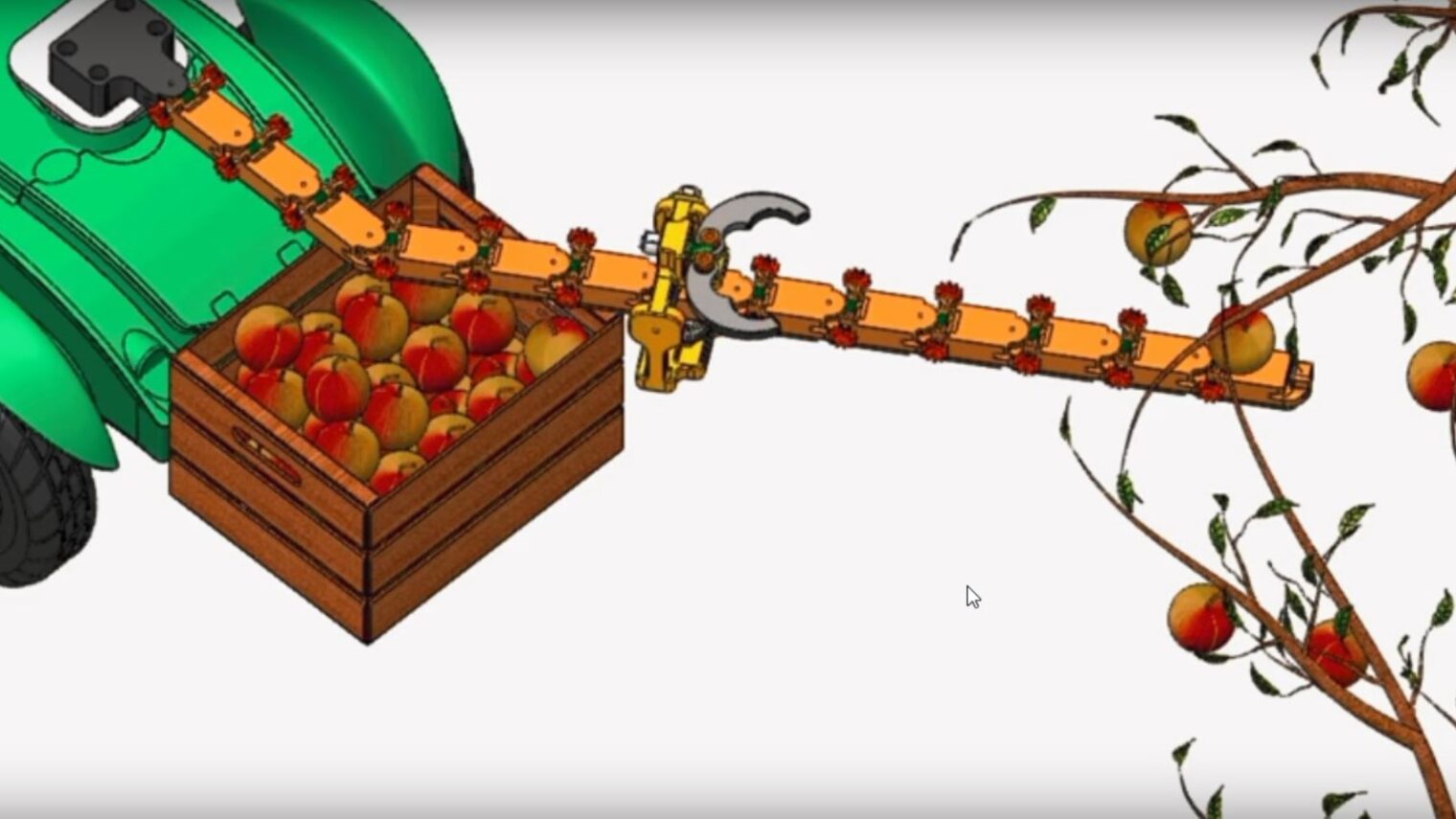You might think that the future of robots is large bipedal units with a human appearance. But for a team of researchers at Ben-Gurion University of the Negev, the next generation of robots is more like a simple snake.
David Zarrouk, head of the school’s Bio-Inspired and Medical Robotics Lab, has developed a “minimally actuated serial robot” (MASR) that travels back and forth along a rotatable structure using its own motors. The relatively fixed motion along a thin path is why this kind of robot is dubbed a snake.
In contrast to other snake robots that travel using many connected motors, Zarrouk’s MASR uses only two, effectively reducing weight, size and cost.
Zarrouk said the MASR would be ideal for agriculture (think picking fruit), industry, search-and-rescue and even fixing, docking or refueling satellites in outer space.
The MASR can add and subtract track pieces quickly – “up to four links in less than a minute,” Zarrouk explains, which “makes it possible to target quick repairs in isolated sections.”
The minimally actuated concept may someday be applied to walking robots, the researchers say, utilizing motors that can change position along the legs of the machine and move from one to another when necessary.
Zarrouk is part of the ABC Robotics Initiative, which is supported by the Leona M. and Harry B. Helmsley Charitable Trust. His next project is a robotic pill that moves through the intestines like a worm and can be remote controlled by healthcare professionals.
Fighting for Israel's truth
We cover what makes life in Israel so special — it's people. A non-profit organization, ISRAEL21c's team of journalists are committed to telling stories that humanize Israelis and show their positive impact on our world. You can bring these stories to life by making a donation of $6/month.






